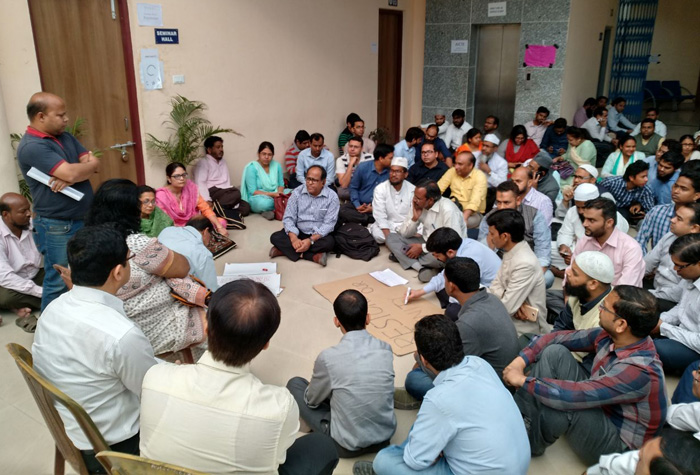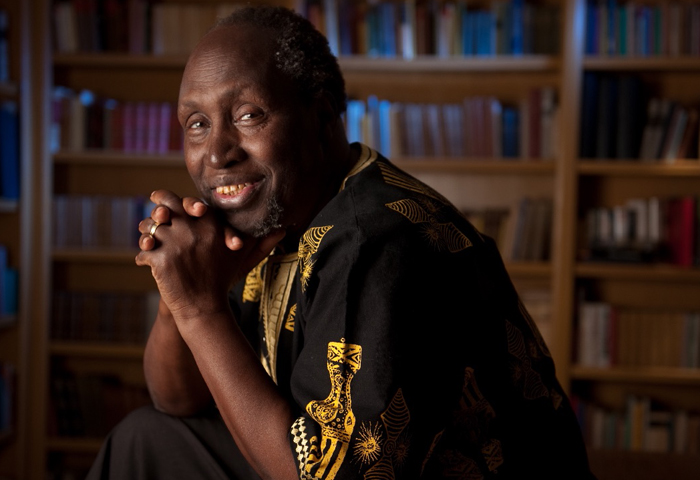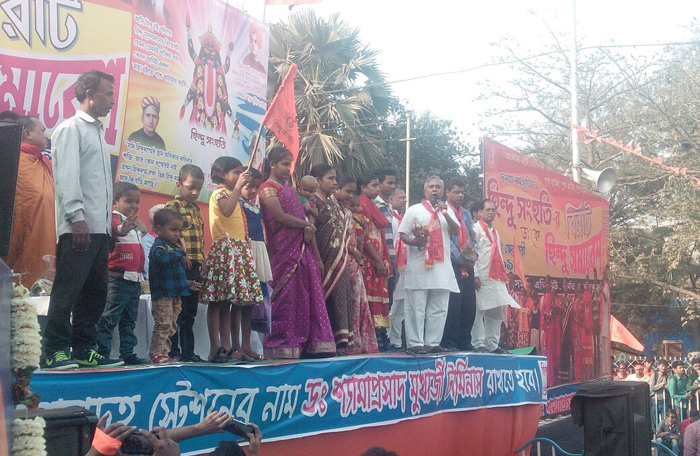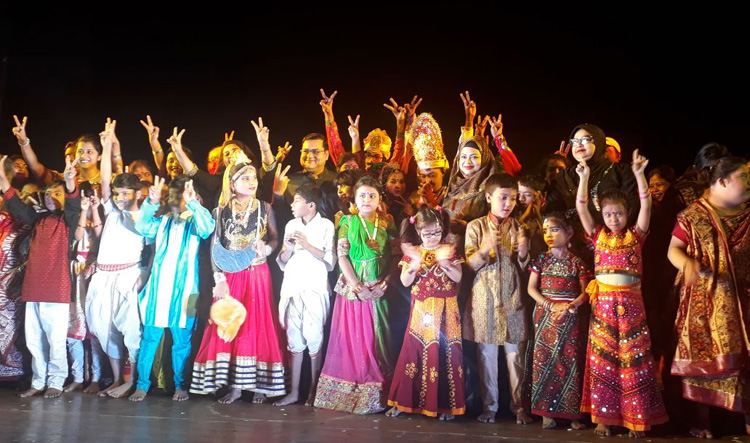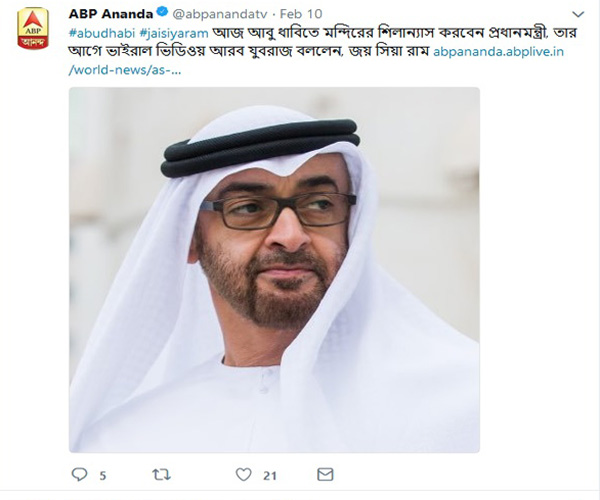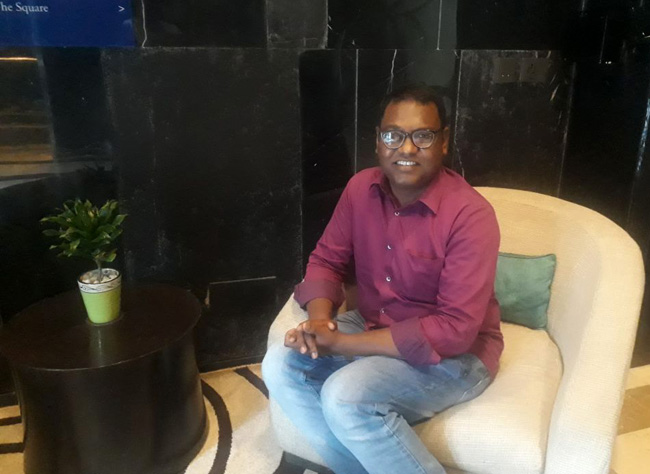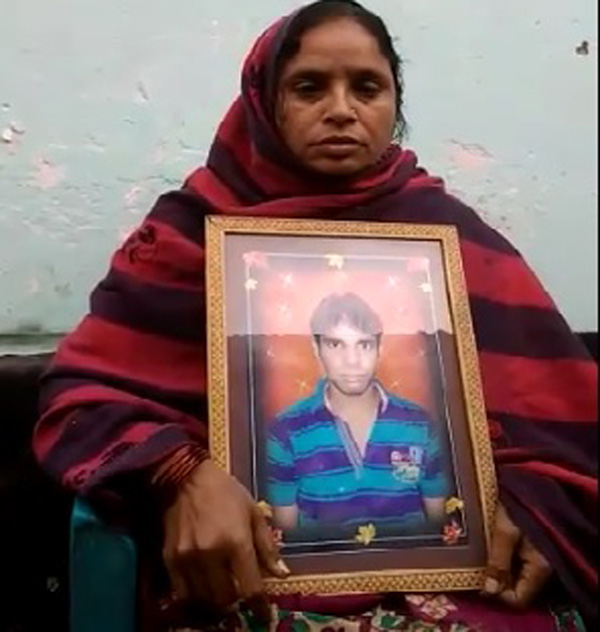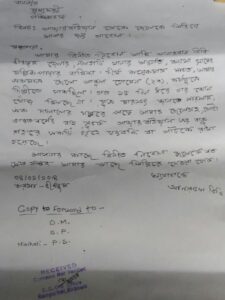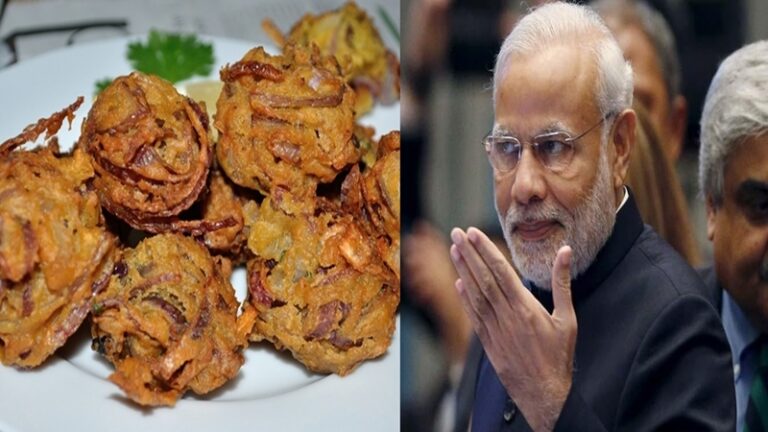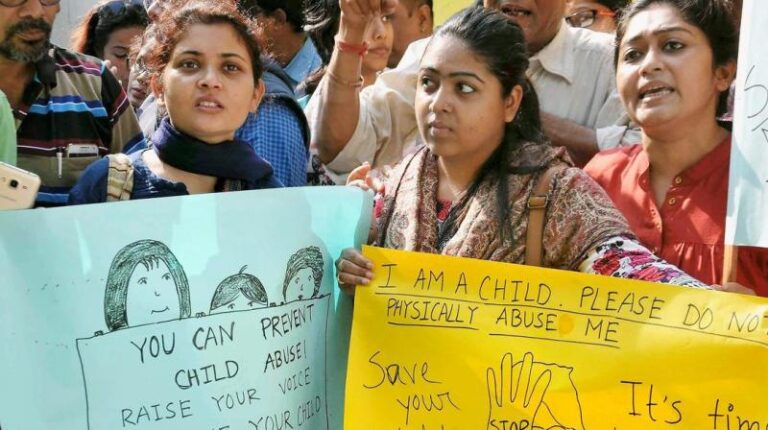Kolkata: MTech students of Aliah University, dared to take a controversial step on Thursday, when they obstructed the path of the University Authorities and over 25 faculty members, who had assembled for the annual Aliah University Admission Test (AUAT) meeting in its New Town campus. In doing so the students holed up them up for almost 18 hours.
The faculties, head of departments and admission committee members from both the university campus had to spend entire night between 5.30 pm to 11.30 am next day at the New Town campus. They were released after other teachers reached the spot to protest against the unlawful confinement.
The agitating students claimed to have been cheated by the University, which had marketed its MTech course as an AICTE approved course. But in reality, the MTech course offered by the University is not approved by the AICTE, though its website has Aliah University, wrongly listed as one of the AICTE approved institute for MTech.
The acting Vice-Chancellor of the University, Dr Nurshad Ali, stated, “The students are protesting as the stipend for Teaching Assistantship for the first year M.Tech students has been cancelled from the University Fund.”
Explaining the student’s perspective was Kazi Minazul Islam, a first year MTech student, stated, “Aliah University had promised to provide teaching assistantship to its MTech students. They had also maintained that MTech course is AICTE approved. But the authorities today have turned indifferent to the problems that we have been facing. Despite the University name flashing on AICTE website as an affiliated institute, the University is yet to get a letter of approval from AICTE. As a consequence we are unable to apply for GATE or any other type of scholarship.”
Another student, who didn’t want to be named said, “We have been repeatedly protesting against this AICTE issue, but none of the University authority is paying heed to our pleas. Hence we decided to protest at the New Town campus, when the AUAT meeting was in progress.” He then added, “Our career is at stake. Many of the MNCs hire only those MTech graduates, who have completed AICTE approved courses. We are at a complete loss, as now the University can get an AICTE certification in 2021.” They even claimed to have been protesting for the past six months. “The indifferent attitude of the faculty forced us to confine them,” said Islam.
While speaking to eNewsroom, Mukandar Sekh, assistant professor, Mechanical Engineering, and one of the detained faulty did admit that glitch on University’s website. He explained, “It’s the bad luck of the university that even the AICTE had goofed up and wrongly added AU’s name in the list of AICTE approved universities for MTech course. They even have admitted to their mistake in a written letter (a copy of which lies with eNewsroom). Adding on to the error, the departing VC had it included in the website. They do have a point, but they shouldn’t have holed us up, we are in no way responsible for what is happening in the University. We don’t even have a VC to take care of such issues.”
As a mark of protest, all teachers associated with the university went for a day-long strike on Friday. The teachers, who had been confined, have even demanded for stern action to be taken against the students who had staged a demonstration the previous night.
Acting swiftly on the demands of teachers, the university authorities, on Friday evening, suspended six students were temporary suspended and also barred them from entering the varsity campus. A disciplinary committee has also been set up to look into the matter.


